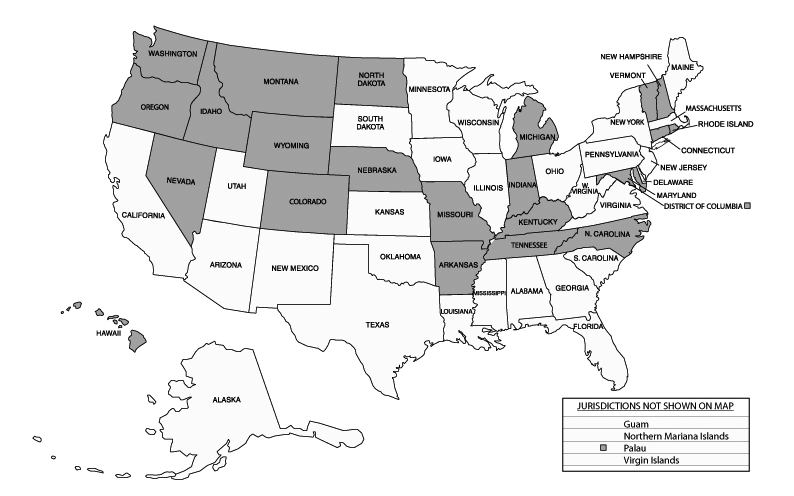This article originally appeared in The Bar Examiner print edition, June 2014 (Vol. 83, No. 2), pp. 4–5.
By Erica Moeser I have discovered the secret to getting mail: ask whether the summer bar examination should be administered earlier than the last week in July. The response: a strong majority said no. Actually, not just no—more like a chorus of “Heck, no!”
I have discovered the secret to getting mail: ask whether the summer bar examination should be administered earlier than the last week in July. The response: a strong majority said no. Actually, not just no—more like a chorus of “Heck, no!”
Earlier this year, the NCBE Board of Trustees determined that it would be useful to poll jurisdictions as to whether it would advance the interests of bar applicants to change the timing of the July bar exam by a few weeks. I also issued a broader invitation to readers of this column to share their thoughts on the subject, and several bar admission administrators circulated the memo that started it all to the deans of the law schools in their jurisdictions.
The response was surprisingly—and wonderfully—robust. The objections were many. Principal reasons for resisting any change whatsoever fell into two major categories: concern about booking space for testing earlier in the summer, and concern that the time for students taking bar review courses not be reduced.
I remain perplexed that the perception of bar review courses as essential institutions seems to be a given for so many, both within the bar examining community and within the group of law school commentators, but it is a matter of fact that it is. Dreamer that I am, I yearn for a world where law schools prepare graduates to exit into the profession, and where the bar exam pinpoints the knowledge and skills necessary to enter the profession. In that world, the synthesis of first-year learning occurs before caps and gowns are handed out, and the courses that develop student understanding of that synthesis are taught by members of the law school faculty rather than outsourced. The bar examination has moved toward this more seamless objective over the past few years, and I will continue to hope for a “bar review-less” transition that is, for now, but a dream.
There were two other questions posed by the Board in the memorandum that was circulated to bar admission boards. One concerned the content of the Multistate Bar Examination and asked for opinions about the expansion of content coverage beyond the seven subjects that will be included in the MBE effective in February 2015 (with the addition of Civil Procedure to the current mix of six topics).
The second question sought reaction to the notion of extending the MBE to six and a half or seven hours of testing (from the current six).
Reaction to those two questions was more mixed, and the responses that were received have been referred to the NCBE Long Range Planning Committee, co-chaired by Diane Bosse of New York and David Boyd of Alabama, for further consideration.
The news about law school enrollments continues to suggest that we have not yet reached the bottom of the present valley. I recently heard that where just a few years ago 47,000 people graduated from law school in a given year, the number is now approaching 37,000. That decline is occurring against the backdrop of more law schools in operation. The number of candidates taking the LSAT has not yet reversed its decline. The cost of attending law school is coming under renewed scrutiny, and law school placement numbers do not paint a cheery picture. Bar examining will continue, of course, but the number of first-time takers is about to dip as the effect of the declining number of law school applications that began several years ago manifests itself in lower numbers of graduates.
Time marches on, and the phenomenon of changing staff leadership in bar admission agencies seems to be accelerating. In my November 2010 column, I noted that there had been turnover in 22 jurisdictions over the past five years. Since then—that is, in less than four years—leadership has changed an additional 24 times (see the map). In 10 instances, the change has occurred in one of the 22 jurisdictions that were reported in 2010. That is quite a bit of upheaval in the licensing structure of the states in which the change has occurred.
Bar Admission Administrator Turnover since November 2010
Jurisdictions with turnover are shaded.

Bar examining is an increasingly sophisticated and litigious area. The complexity of contending with fitness applications, test accommodation requests, and all-important test security and scoring processes is best managed through training and experience. NCBE offers training to new administrators, and as the figures above attest, the newcomers keep coming at an even faster pace than before; however, seasoning and accumulated wisdom take time to develop.
Our Seattle program this May was a success by any measure. NCBE’s Annual Bar Admissions Conference garnered a lot of praise for its content and for the quality of the speakers. Every year our Education Committee labors to bring relevant and essential information to our constituents, and this year they outdid themselves. The NCBE staff that made it all look effortless was led by Deb Martin and Laurie Lutz. This was Deb’s swan song, as she is planning to slip into a well-earned retirement as we go to press. We wish her many joyful years pursuing her wide range of interests.
Contact us to request a pdf file of the original article as it appeared in the print edition.







